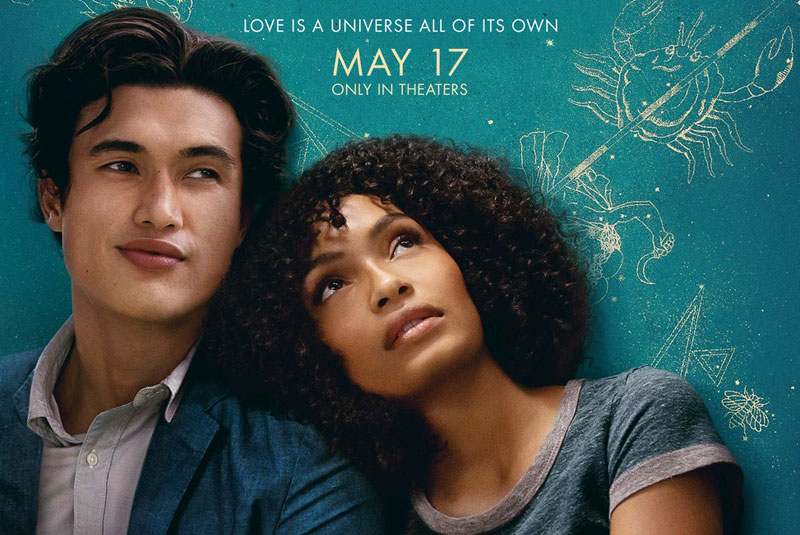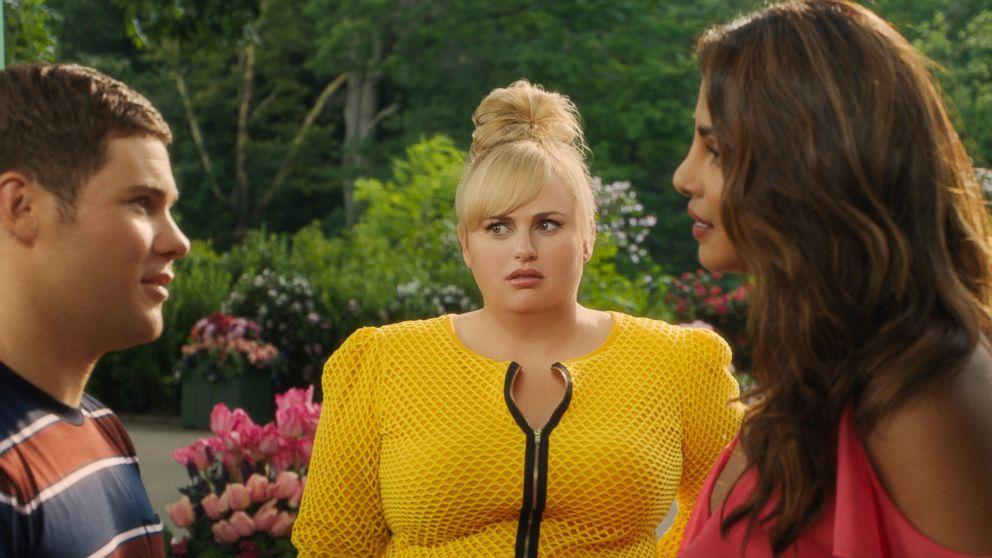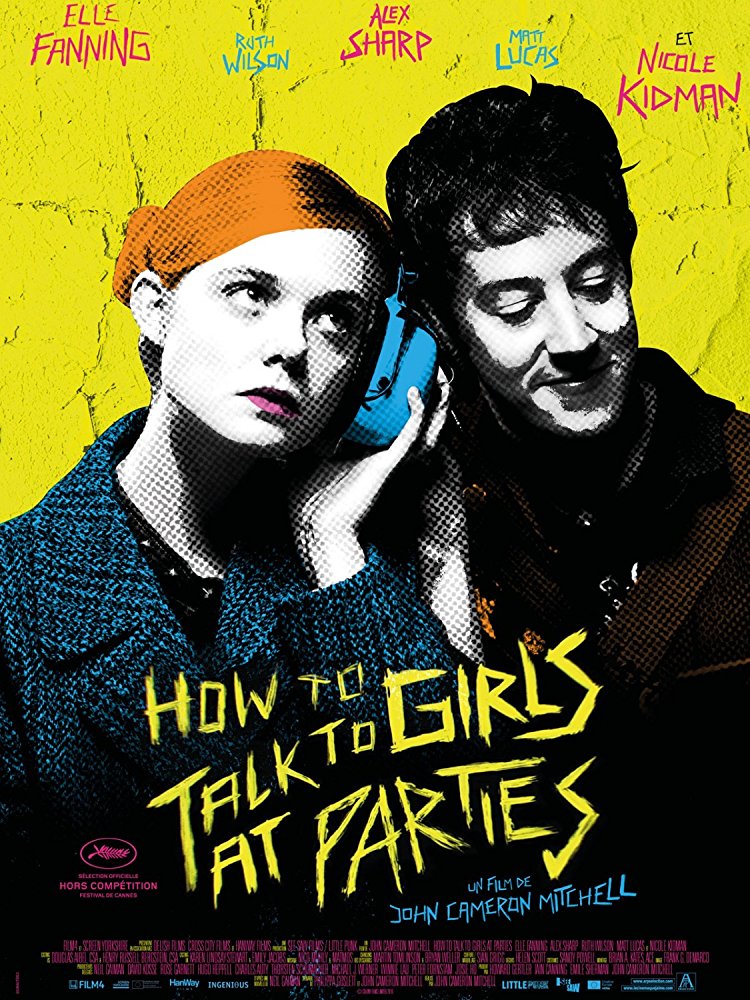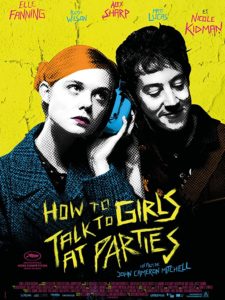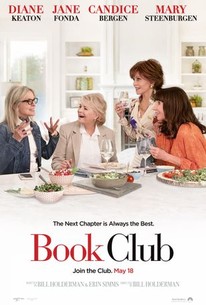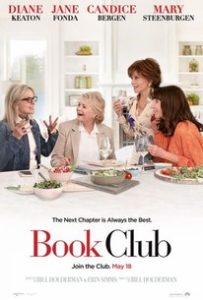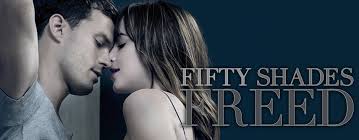The Sun is Also a Star
Posted on May 15, 2019 at 6:15 am
B +| Lowest Recommended Age: | High School |
| MPAA Rating: | Rated PG-13 for some suggestive content and language |
| Profanity: | Some strong language |
| Alcohol/ Drugs: | None |
| Violence/ Scariness: | Accident with pedestrian injuries, family scuffle |
| Diversity Issues: | A theme of the movie |
| Date Released to Theaters: | May 17, 2019 |
| Date Released to DVD: | August 19, 2019 |
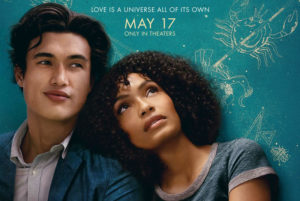
That is a theme in “The Sun is Also a Star,” along with the divide and sometimes conflict between poetry and science, the left brain and the right, what we feel and what we can prove, and the needs and dreams of the individual versus what is best for the family or the group — and who gets to decide what “best” means. And at the center of it is the thrum of issues of immigration and assimilation. It might be easy to lose sight of the love story under the weight of all of this, but the star power of lead actors Yara Shahidi (“Black-Ish” and “Grown-Ish”) and Charles Melton (“Riverdale,” “Glee”) and the deeply romantic direction of Ry Russo-Young, the romance is in every way the heart of the film.
Natasha (Shahidi) is the daughter of Jamaican immigrants who are being deported following an ICE raid of the restaurant where he father works. The family moved to New York when she and her brother were young children, meaning that they are not American citizens in the family on which to base an appeal. As her parents pack up, Natasha goes to ICE to see if she can appeal their decision.
A compassionate case officer says it is too late for him to re-open the case but he gives her the card of a lawyer who might be able to help. Because he cannot see her until noon, later postponed to 4:30, she is stuck downtown, not enough time to go home, but, perhaps enough time to fall in love?
Natasha does not believe in love, or so she says. She dismisses it as romantic hogwash, just a distractingly poetic way to describe hormones. She is interested in data and science. If love cannot be measured and studied according to the strictures of the scientific method, she says, it cannot be true.
The person she says it to is Daniel (Melton), the son of Korean immigrants, who glimpses Natasha at Grand Central Station when he is on his way to a very important alumni interview for Dartmouth. He grabs her away from a careening car that has already knocked down one pedestrian and she accepts his invitation to go for coffee. He is a poet, a romantic, a believer in signs and omens. Natasha’s jacket has the same ancient Greek phrase that he had jotted down in his notebook that morning: deus ex machina. Literally, it translates to “god from the machine,” referring to the mechanical device used in Greek theater to bring the deity characters on stage. But it is a literary term meaning some extraordinary, sometimes supernatural or god-like force that suddenly changes the trajectory of a story, usually resolving it for the better.
Daniel tells Natasha he can make her believe in love. He begins with the famous 36 questions followed by a silent stare into each other’s eyes. She insists that it cannot possibly work, but as the day goes on, she cannot help but be drawn to him. As they watch a show at the Planetarium (perhaps a nod to “Rebel Without a Cause”), she reaches for his hand.
Their walk-and-talk courtship involves visits to each other’s families and some surprising, one might even say cosmic connections. Melton and Shahidi make a graceful transition from television to the big screen, with charisma and chemistry to spare. Their chemistry is almost tactile, with a deep sweetness. With all of their differences in outlook and situation, their shared bond as the children of immigrants, struggling with what they owe to the past and what they dream of for the future is so real to us that by the end we are holding our breath hoping for the magic to go on.
Parents should know that this film includes some strong language and crude sexual references, a car hitting a pedestrian, and a scuffle between brothers, as well as some issues of family conflict and the prospect of deportation.
Family discussion: Daniel’s father says that Daniel should do what is best for the community. What do you think is best for the community in that context? Can you fall in love by asking each other questions? Was there a time where what you thought was something going wrong turned out to be right? Can tragedy be funny?
If you like this, try: “Before Sunrise,” “Nick and Nora’s Infinite Playlist,” and “Everything Everything”

